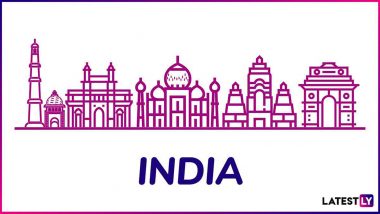New Delhi, Aug 20 (PTI) A Delhi government's policy to make the city "self-reliant" in production of medical oxygen to tackle any COVID-19 crisis as seen during the second wave or any other medical emergency in future, has been notified, officials said on Friday.
The Medical Oxygen Production Promotion Policy of Delhi 2021 was approved by the Delhi Cabinet on August 3.
Also Read | Raksha Bandhan 2021: Top 4 Gadgets To Gift Your Sister This Rakhi.
"The ongoing COVID-19 crisis fuelled by a new 2021 strain of the virus has put an enormous pressure on existing healthcare infrastructure, including medical logistics, in the NCT of Delhi," reads the gazette notification dated August 19.
A large number of Covid patients need continuous oxygen support at hospitals and at homes. This sudden increased demand coupled with negligible oxygen production in the state has necessitated dependence on resources outside Delhi, it said.
Also Read | Former Fortis Healthcare Promoter Shivinder Singh’s Wife Cheated of Rs 200 Crore.
"As the number of patients requiring oxygen support increased in a very short span of time, the pressure on supply of medical oxygen to hospitals was significantly strained, leading to notable delay in movement of oxygen from outside Delhi," it said.
Though the present situation is better, but a similar crisis may reoccur in future and it is needed to be better equipped to manage such a situation in future, reads the notification.
"This policy has been introduced with an aim to make Delhi self-reliant in production of medical oxygen to meet with any such crisis or medical emergency in future," it said.
The objective of the policy is to increase production of oxygen in Delhi through setting up of either new manufacturing enterprises or expanding the production capacity of existing units for uninterrupted oxygen supply to hospitals or nursing homes during the health crisis caused by COVID-19 or otherwise," it reads.
The policy also seeks to facilitate storage and transportation of medical oxygen in Delhi.
The objective of the Medical Oxygen Production Promotion Policy of Delhi 2021 is to ensure time-bound fulfilment of several targets by incentivising early investment in the production or storage infrastructure for medical oxygen, including setting up of liquid oxygen (LOX) manufacturing facilities of minimum 50 MT capacity, up to a total of 100 MT.
Non-captive oxygen generation plants (PSA/Air Separation Unit technology) of minimum 10 MT and maximum 50 MT capacity up to 100 MT is also one of the targets.
Other targets include captive oxygen generation plants (PSA/Air Separation Unit technology) of minimum 500 LPM capacity at hospitals and nursing homes to cater to their peak demand for medical oxygen, up to a total capacity of 200 MT, reads the notification.
Cryogenic tankers of minimum 10 MT carrying capacity for exclusive purpose of ferrying liquid medical oxygen (LMO), up to 500 MT capacity; and LMO storage tanks of minimum 10 MT capacity, up to 1,000 MT capacity, are among the targets for the policy.
Applicants shall have a minimum experience of three years either in the production or refilling of liquid or gaseous oxygen for medical or industrial use, the notification said.
Among the eligibility criteria under this policy, the notification reads, if the eligible medical oxygen generation units are also producing industrial oxygen, the same will not disqualify them for incentives under this policy.
Only those hospitals and nursing homes shall be eligible under this policy or scheme, which are registered with the department of health and family welfare of the Delhi government, it added.
"No unit, which has obtained subsidy or incentive for setting up the plant from any other agency, shall not be eligible for subsidy/incentive under this policy/scheme," the notification reads.
Delhi had battled against an acute shortage of oxygen in April and May as hospitals sent out SOS calls to authorities to replenish their dwindling stocks. Several private healthcare facilities had even requested the government to move out their patients.
The day cabinet had approved the policy, the city government in a statement had said, "Power subsidy will be made available to liquid oxygen generation plants and non-captive oxygen generation plants at Rs 4 per unit consumed in the manufacturing process for the first five years from the date of commencement of commercial production".
The minimum lock-in period for the beneficiaries under this scheme shall be five years, the notification reads.
(This is an unedited and auto-generated story from Syndicated News feed, LatestLY Staff may not have modified or edited the content body)













 Quickly
Quickly
















